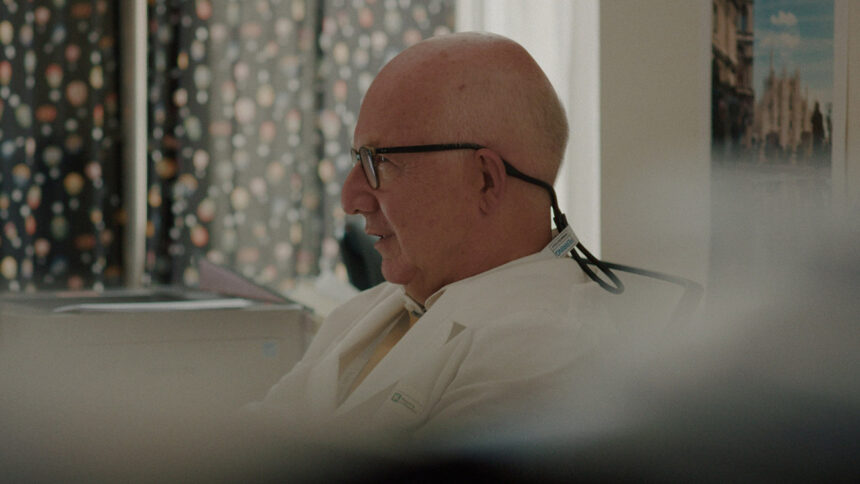In Italian director Gianluca Matarrese’s compassionate fly-on-the-wall documentary, GEN_, we’re introduced to a doctor specializing in two fields that, to some people, may seem almost diametrically opposed. As a seasoned endocrinologist working at Milan’s Niguarda hospital, Dr. Maurizio Bini runs both a busy fertility clinic and a department practicing gender-affirming surgery and hormonal treatment for trans patients.
In a majority Catholic country like Italy, whose current leader campaigned on a slogan that translates as “Yes to natural families; no to LGBT lobbies,” Bini feels like something of a miracle. He’s been able to help boost his nation’s declining birth rate (one of the lowest in Europe) while also assisting a growing trans community. Perhaps even more remarkable is the fact that his medical procedures are fully covered by Italy’s public healthcare system, even if a far-right party dominates local politics.
GEN_
The Bottom Line
Empathetic and informative.
Venue: Karlovy Vary International Film Festival (Horizons)
Director: Gianluca Matarrese
Screenwriters: Gianluca Matarrese, Donatella Della Ratta
1 hour 43 minutes
Matarrese, whose previous docs tackled haute-couture runway shows (Fashion Babylon) and his family’s retail shoe business in Torino (Everything Must Go), follows the doctor in his daily rounds over the months leading up to his retirement. Much of the action entails Bini sitting down in his office and speaking with his patients, at which point he transforms into a psychologist, or sometimes a philosopher, to help them deal with highly complicated personal issues. And he does this not only in Italian, but also in Mandarin or Arabic — and probably many other languages that he masters.
When Bini is not in the hospital, Matarrese films him hiking the Lombardy countryside looking for rare mushrooms. At first these sequences seems far removed from the rest of the movie, until the doctor explains that mushrooms reproduce when male cells fertilize female ones, just like humans do. With his warm approach and extreme empathy, Bini comes across as a character from another, better time — a genuine humanist able to practice an IVF or gender confirmation operation in the same day. When asked why he does both, he replies without a second thought: “We are doctors to help people.”
The most memorable scenes in GEN_ feature him counseling young trans patients, some of whom are satisfied with their treatments and others of whom come back asking for additional procedures. “You’re a more beautiful person than you think,” the doctor tells one 20-year-old asking for what basically amounts to facial surgery, while another tearfully describes hormonal treatment as “a matter of life or death.”
Matarrese, who also served as cinematographer, documents these talks from a sensitive distance, allowing the patients to act naturally in his presence. Bini seems to be more aware of the camera, to the point that his sessions can seem a tad performative. But they’re informative as well, allowing us to dig deep with certain patients as the doctor walks them through life-changing decisions.
What GEN_ winds up creating is a normalizing experience for the viewer, even if what we’re watching is still considered quite problematic for certain people. Bini treats his trans patients with honesty and respect, and he treats the heterosexual couples who come into his office the same exact way. For the doctor, there’s no difference between the two, and the film posits that it should be like that everywhere. Matarrese may be capturing a tiny utopia in one public hospital in northern Italy, but his movie leaves us with the hope that, sooner than later, such a place may not be so unique.









